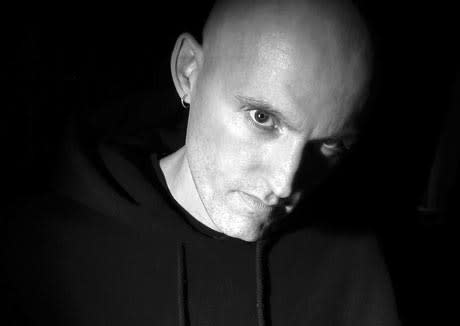Akumus third full-length album, since beginning to record and self-release on his own Spider Records back in 2000, finds him making fog-laden waves of atmospheric ambience and deep burbles of techno glitch-ery that dont hold back on the bass-heavy depths department. Rather, the bass on Magmas rolls back and forth, over and around like an organism itself. This could be because the man behind Akumu (which is Japanese for "bad dream), Torontos Deane Hughes, is fascinated by "the underlying mechanics of things, what lies beneath, the way things evolve, which is made beautifully apparent in the lifelike way Magmas unfolds, moves about, grows and recedes. Electronic glitch sounds and rotating rhythms begin from a disassociated beginning, then multiply and seem to grow more hostile as they march forward in the slow-building mix of "Aguanatural. They then disperse into calm stillness on the "Microscopes interlude and take up the march again with "Alarma, only to be deposited into cool yet ominous waters on "Landscape XIX. This is but one lengthy example of the smooth progressions that fill out Magmas, but this album is by no means limited to simple oppositions or now-you-hear-it-now-you-dont trickery. Rather, Magmas lives and breathes with a life of its own.
What frame of mind are you in when you record? I try to totally isolate myself the outside world, music, everything. With this record, and the previous record, theres a theme of isolation and I think it really suits itself to recording this stuff, really, really internalising the whole process.
How did being in Guatemala, Honduras and Mexico inspired Magmas? [My girlfriend and I] travelled quite a bit around the area and saw beautiful nature and everything from that to thriving, dirty cities, and just seeing those two extremes as an outsider. Really I found that very inspiring to see how much complexity there is in the same space. I wanted to make a record that somehow reflected that, which, on the surface it always looked like a city, but you could always go levels and levels and levels deeper And the same thing with the natural elements, you know, it looks like one thing on the surface, and then theres another layer, another layer, all the way down to the molecular level. Somehow I kind of drew from that while I was travelling. It seemed to be a theme and I found that somehow inspiring.
(Spider)What frame of mind are you in when you record? I try to totally isolate myself the outside world, music, everything. With this record, and the previous record, theres a theme of isolation and I think it really suits itself to recording this stuff, really, really internalising the whole process.
How did being in Guatemala, Honduras and Mexico inspired Magmas? [My girlfriend and I] travelled quite a bit around the area and saw beautiful nature and everything from that to thriving, dirty cities, and just seeing those two extremes as an outsider. Really I found that very inspiring to see how much complexity there is in the same space. I wanted to make a record that somehow reflected that, which, on the surface it always looked like a city, but you could always go levels and levels and levels deeper And the same thing with the natural elements, you know, it looks like one thing on the surface, and then theres another layer, another layer, all the way down to the molecular level. Somehow I kind of drew from that while I was travelling. It seemed to be a theme and I found that somehow inspiring.




